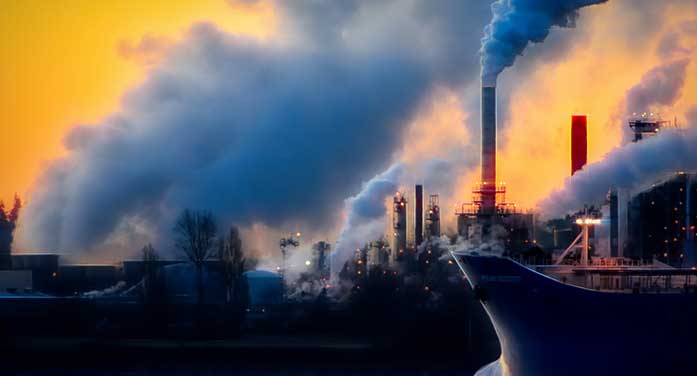 Froth is enveloping global energy dynamics. Nothing is clear. Confusion prevails. Gasoline prices have already topped $2 a litre in British Columbia and other provinces, Ontario included, aren’t far behind.
Froth is enveloping global energy dynamics. Nothing is clear. Confusion prevails. Gasoline prices have already topped $2 a litre in British Columbia and other provinces, Ontario included, aren’t far behind.
It’s virtually impossible to keep track of all the factors impacting energy prices.
The key issue is the volume of crude oil that’s off the market due to the Russian invasion of Ukraine and the Western sanctions that followed.
Many buyers are shunning crude supplies from Russia, fearing implications – despite the sanctions exempting the Russian energy sector. In this tight energy market, the world needs these Russian barrels. So buyers shying away from Russian crude are scrambling for supplies from elsewhere. That’s not easy.
It’s also difficult to estimate exactly how much this is hurting Russia.
“We expect that Russian oil exports will plunge by one million barrels per day (bpd) from the indirect impact of sanctions and voluntary actions by companies,” said Jarand Rystad, the chief executive of the Norwegian consultancy Rystad Energy. Russian crude exports are generally at four and five million bpd.
Consequently, the Russian flagship Urals crude is being offered at a record discount. The oil trading giant Trafigura late last week offered it at a US$22.70-a-barrel discount compared to Brent crude.
But Russia is beginning to flex its muscles. In retaliation for Germany’s announcement that it would halt approval of the Nord Stream 2 pipeline to carry gas from Russia to Germany, Russia reportedly stopped the flow of natural gas to Germany via the Yamal pipeline. Transport of natural gas from Russia on the Yamal-Europe pipeline via Belarus to Poland and Germany has been volatile and mostly running east from Germany to Poland since the end of December.
Galloping crude prices were also supported by the decision of the Organization of Petroleum Exporting Countries and allies in OPEC+ – including Russia – to increase their output by just another 400,000 bpd, as originally planned.
In the meantime, oil production from Libya’s largest oilfield, El Sharara, reportedly had to be suspended due to ongoing government uncertainty there. The El Sharara field is responsible for the production of some 300,000 bpd at full capacity, more than a quarter of Libya’s total crude oil output.
And despite the urgings of the United States, OPEC+ kingpin Saudi Arabia doesn’t seem likely to open its taps any time soon. Prince Mohammed bin Salman wants official U.S. recognition that he’s the de facto ruler of Saudi Arabia. He also wants U.S. support in the Saudis’ ongoing war with Yemen.
The United States and its allies are making efforts to ease crude supplies. Last week, after a ministerial meeting of the Paris-based International Energy Agency, it was announced that the U.S. and its partners would release 60 million barrels from their strategic reserves. This represents less than a day of total global consumption. By Tuesday, it was evident this strategy failed to cool the markets.
The U.S. is also toying with other tools. When the keynote address by Saudi Arabia Oil Minister Abdulaziz bin Salman at a Houston energy conference was taken off the agenda on Friday, some felt it was a deliberate slap on the wrist for the Saudis.
The U.S. administration is also saying it wants to “degrade” Russia’s oil and gas power. That seems a strategic objective.
Shipments of tools and equipment needed by the Russian energy sector have been stopped, and Western oil majors are pulling out of Russia.
Europe’s energy crisis set the stage for war in Ukraine by Tim McMillan
Unfortunately, Canada is in no position to help because of decades of poor energy policy
Shell has announced it’s cutting ties with the Russian state-owned energy giant Gazprom. And BP said it will sell its shares in the Russian state firm Rosneft. Merchant trader Trafigura has frozen its investments in Russia. And Norway’s US$1.3-trillion sovereign wealth fund, the world’s largest, is divesting its Russian assets. Oilfield service majors like Halliburton, Schlumberger and Baker Hughes could also leave the country.
And hopes of reviving the Iran nuclear agreement are growing. Iranian journalist Reza Zandi tweeted on Thursday that Iran’s oil is returning to the market under golden circumstances.
In this ongoing battle of nerves, Russia isn’t friendless. Its allies include China, whose companies are expected to scoop up discounted Russian oil should Western sanctions deter other buyers. This would repeat the pattern seen when Iran and Venezuela were hit by U.S. curbs on oil exportation.
The stakes are high for the energy world, which must deal with factors on several fronts.
Toronto-based Rashid Husain Syed is a respected energy and political analyst, with the Middle East his area of focus. As well as writing for major local and global newspapers, Rashid is also a regular speaker at major international conferences. He has provided his perspective on global energy issues to the Department of Energy in Washington and the International Energy Agency in Paris. For interview requests, click here.
The opinions expressed by our columnists and contributors are theirs alone and do not inherently or expressly reflect the views of our publication.
© Troy Media
Troy Media is an editorial content provider to media outlets and its own hosted community news outlets across Canada.

